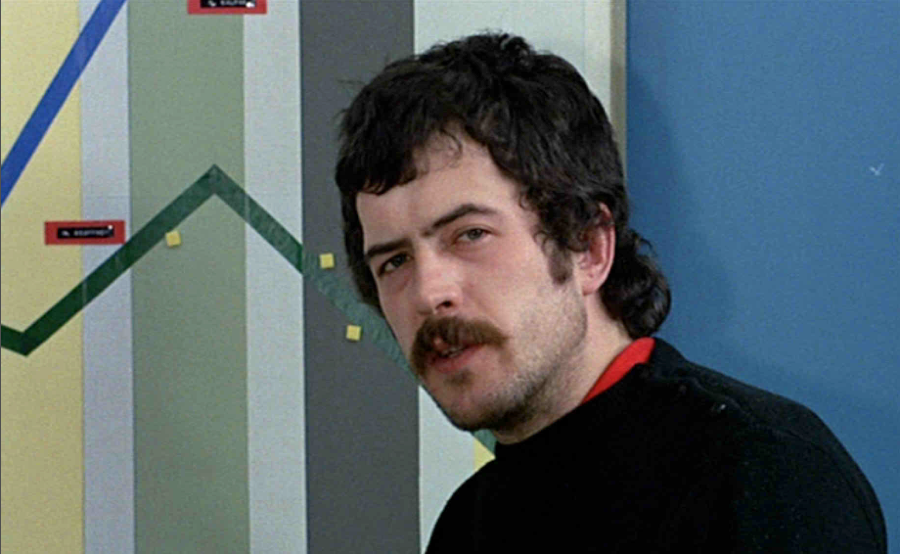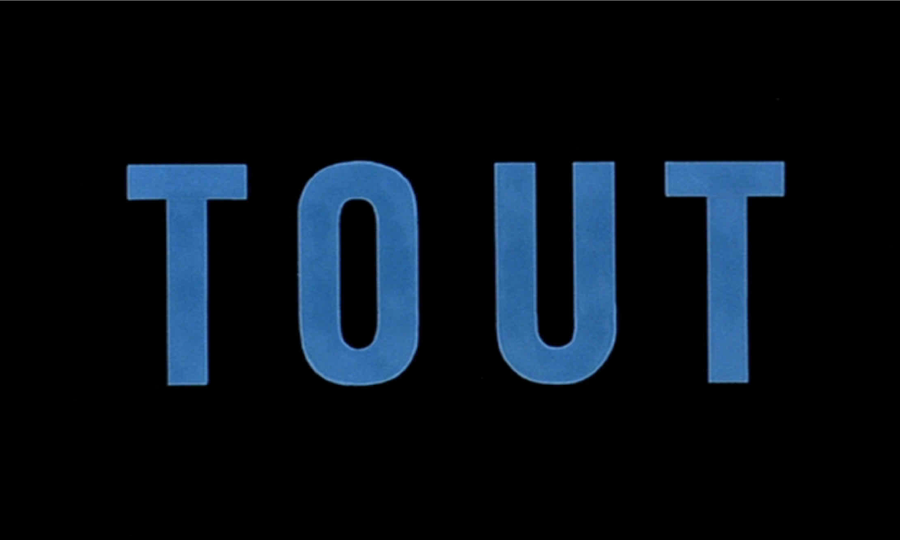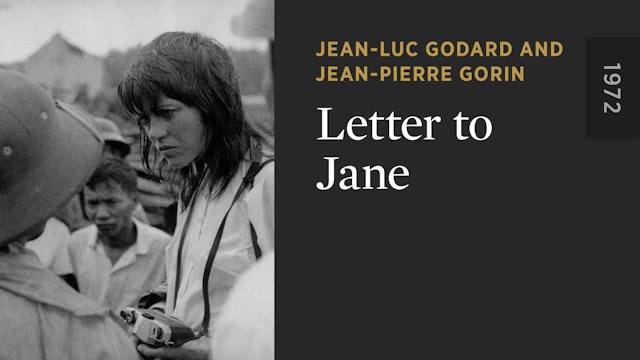Tout va bien Revisited, Current
4.8 (778) In stock

The first, fantastically inventive stage of Jean-Luc Godard’s career ended with the flaming apocalypse of Weekend (1967) and the events of May ’68, in which he participated both as a demonstrator and (anonymous) filmmaker. Over the next five years, he would strive to reinvent movies again, both on his own and with erstwhile student activist Jean-Pierre Gorin, as the Dziga Vertov Group. His mantra: “The problem is not to make political films but to make films politically.” A revolutionary maker of documentaries, Vertov was invoked in opposition to both commercial Hollywood cinema and the Soviet fictions identified with Sergei Eisenstein. The Dziga Vertov Group films—A Movie Like All the Others (1968); British Sounds and Pravda (1969); Wind from the East, Struggle in Italy, the unfinished Until Victory (1970); Vladimir and Rosa (1971)—were made on 16mm or for television (or both). These films were openly tendentious in their more or less Maoist analysis of the political situation in various countries, including the United Kingdom, Czechoslovakia, Jordan, Italy, and the United States. Save for small groups of committed militants or abstruse theoreticians, however, most audiences found the combination of recondite ideological hectoring and austere formal rigor all but unwatchable. In early 1971, making an attempt to appeal to a wider audience, Godard and Gorin returned to a more populist—and less sectarian—political mode. “We were in a kind of ghetto, and we really wanted to go outside,” Gorin explained a few years later. “That was both a matter of strategy and economy.” Tout va bien’s announced purpose was to “consider the class struggle in France four years on from 1968.” And as the culmination of Godard’s political period, the movie is highly reflexive. Indeed, Tout va bien’s autocritique begins almost before the movie itself. “If you use stars, people will give you money,” an off-screen voice opines amid a flurry of filmed check-signing. True: Thanks to the participation of Jane Fonda, who plays an American radio journalist in France, and Yves Montand, as her filmmaker husband, Tout va bien was financed by Gaumont. (For a time, Paramount was interested as well.) To drive home the point, Fonda and Montand are introduced quoting lines from Godard’s previous star-driven commercial feature, Contempt—a parody for which Gorin later took credit.

PDF) Collaborative Translation Revisited: Exploring the Rationale

PDF) Cinema Against Spectacle: Technique and Ideology Revisited

Tout Va Bien

Le Marche: Verdicchio with Spaghetti & Clams - Tout va bien! (tm)

Socialist Film Review — Tout Va Bien (1972)

Tout Va Bien by Jean-Luc Godard

Tout va bien (1972) The Criterion Collection

Tout Va Bien by Jean-Luc Godard

Tout va bien - The Criterion Channel
The Occupation, colonial conflicts, and national identity in

Film Review] Tout Va Bien (1972) – Cinema Omnivore
Tout va bien! 1 livre de leleve - Outros Livros - Magazine Luiza
Tout Va Bien 3! Méthode de Français - Livre d' Èlève - Vários
Tout Va Bien! 1 Cahier D´exercices + Cd Audio - 9782090352917
- USA Pro cross back sports bra
 Men's Slim Fit Casual 2 Button Blazer Jacket Sport Coat
Men's Slim Fit Casual 2 Button Blazer Jacket Sport Coat Lulu Blissfeel Lemon Run Running Shoes Pale Linen, Pink Parfait, White Mens/Womens Sneaker P2BG# From Zhiniao, $43.06
Lulu Blissfeel Lemon Run Running Shoes Pale Linen, Pink Parfait, White Mens/Womens Sneaker P2BG# From Zhiniao, $43.06 Então, Brilha! dá início ao Carnaval 2024 em BH celebrando a força das águas
Então, Brilha! dá início ao Carnaval 2024 em BH celebrando a força das águas Cristiano Ronaldo Shows His Ripped Body for Underwear Line!: Photo 3730327, Cristiano Ronaldo, Shirtless Photos
Cristiano Ronaldo Shows His Ripped Body for Underwear Line!: Photo 3730327, Cristiano Ronaldo, Shirtless Photos Dance's new leading ladies fight back: How female vocalists are
Dance's new leading ladies fight back: How female vocalists are
